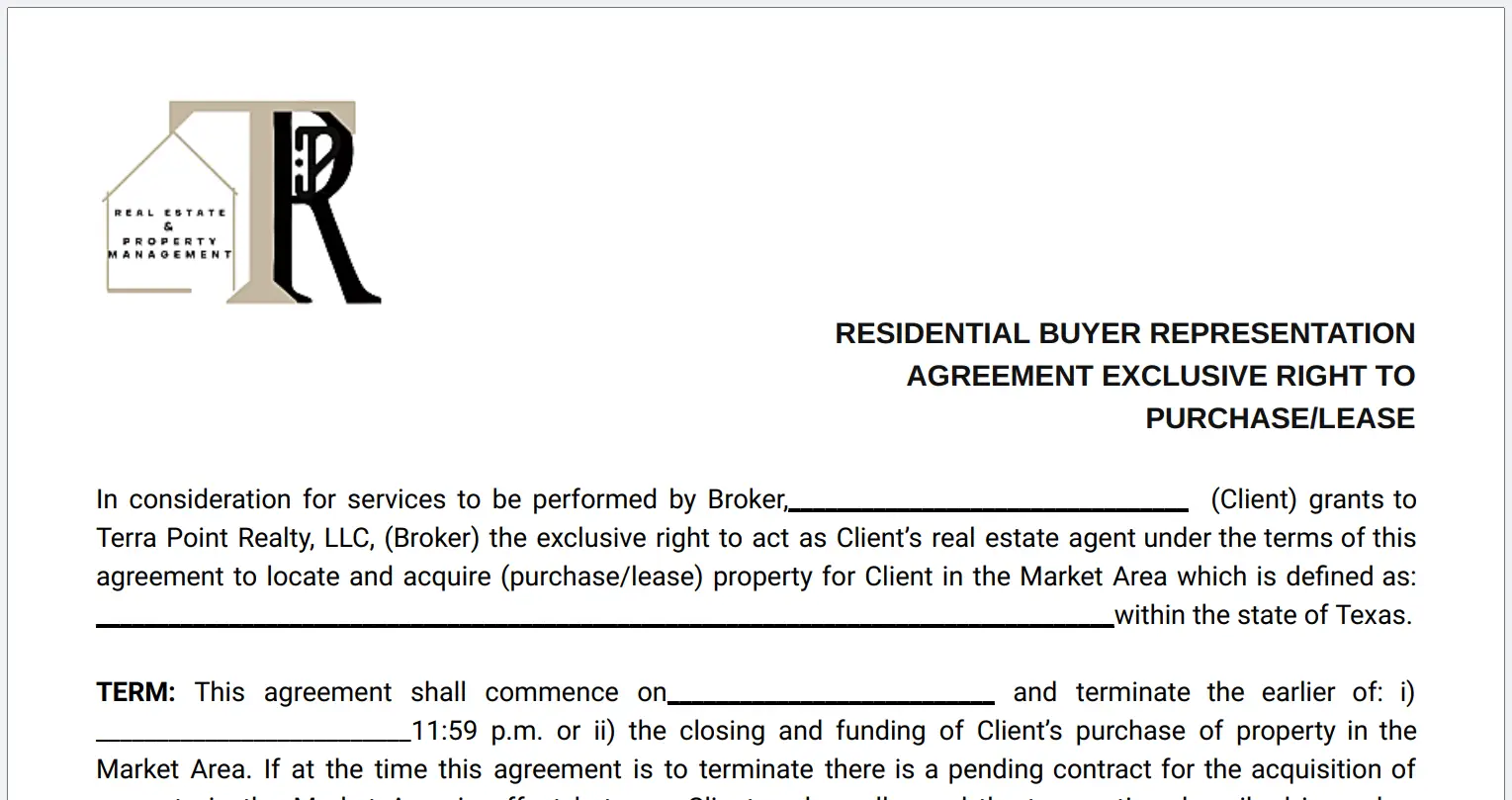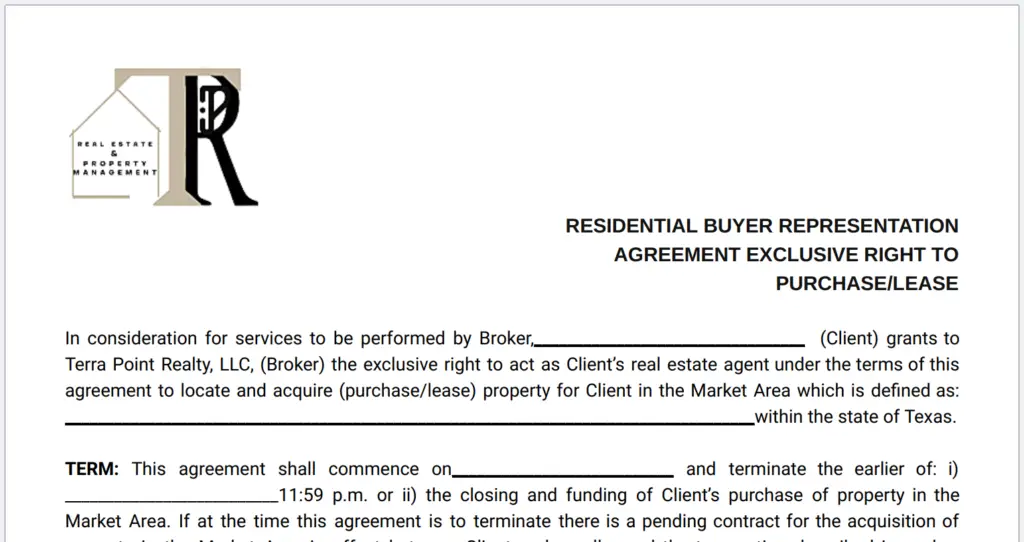Why Is A Buyer Representation Agreement Important In Texas

A Buyer Representation Agreement in Texas is important for several reasons, primarily focusing on the clarity and protection it offers both the buyer and the real estate agent involved in a property transaction.
Clarity of Relationship and Expectations
The Buyer Representation Agreement clearly outlines the relationship between the buyer and the real estate agent. It specifies the agent’s obligations to the buyer, such as efforts to assist in finding a property, negotiating the purchase, and providing relevant information about the properties. This agreement ensures that the buyer understands what services to expect from the agent and what the agent expects from the buyer in return.
Legal Protection and Compensation
This agreement also serves as a legal tool that protects the rights and interests of both parties. For the real estate agent, it guarantees that they will be compensated for their services if a purchase is made. The agreement often includes terms about the commission to be paid upon the successful closing of a property deal, which is crucial for agents as it secures their payment for the services rendered.
Exclusivity and Commitment
By signing a Buyer Representation Agreement, the buyer agrees to work exclusively with the agent for the duration of the agreement. This exclusivity is beneficial for the agent as it prevents the buyer from engaging multiple agents simultaneously, which can dilute the efforts and resources of any single agent. For the buyer, this arrangement can mean more dedicated service and personalized attention from the agent.
Tips to Find the right real estate broker.
Transparency in Transactions
The agreement increases transparency in the real estate transaction process. It lays out the terms of compensation and the agent’s duties, which helps in setting clear expectations and reducing potential conflicts between the buyer and the agent. This transparency is essential in building trust and ensuring that both parties are committed to the process.
Ethical and Professional Standards
The agreement reinforces professional standards and ethical obligations that the agent owes to the buyer. Under the agreement, the agent is legally bound to act in the best interests of the buyer, providing a higher level of accountability and encouraging ethical practices in real estate transactions.
In summary, a Buyer Representation Agreement in Texas is crucial as it formalizes the relationship between the buyer and the real estate agent, ensuring commitment, transparency, and protection for both parties involved in the transaction. It helps define roles, clarify expectations, and safeguard the legal and financial interests of both the buyer and the agent.
Consequences Of Not Having A Buyer Representation Agreement Signed In Texas.
Not having a Buyer Representation Agreement in Texas can lead to several consequences, including:
- Commission disputes: Without an agreement, there may be confusion about who is entitled to the commission in the event of a sale. This could lead to disputes between the buyer, seller, and their respective agents, potentially delaying or even preventing the transaction from taking place.
- Lack of legal protection: A Buyer Representation Agreement provides legal protection for both the buyer and the agent. Without it, the agent may not be held accountable for their actions or obligations during the transaction process.
- Exclusivity issues: If a buyer is not represented by an agent, they may not have the same level of exclusivity and dedication from the listing agent or broker, who may have multiple clients and priorities.
- Transparency and accountability: A Buyer Representation Agreement ensures that the agent is acting in the best interests of the buyer and provides transparency in the transaction process. Without this agreement, the buyer may not have the same level of trust and confidence in the agent’s actions and advice.
In summary, not having a Buyer Representation Agreement in Texas can lead to disputes over commissions, lack of legal protection, issues with exclusivity, and reduced transparency and accountability in the transaction process.

